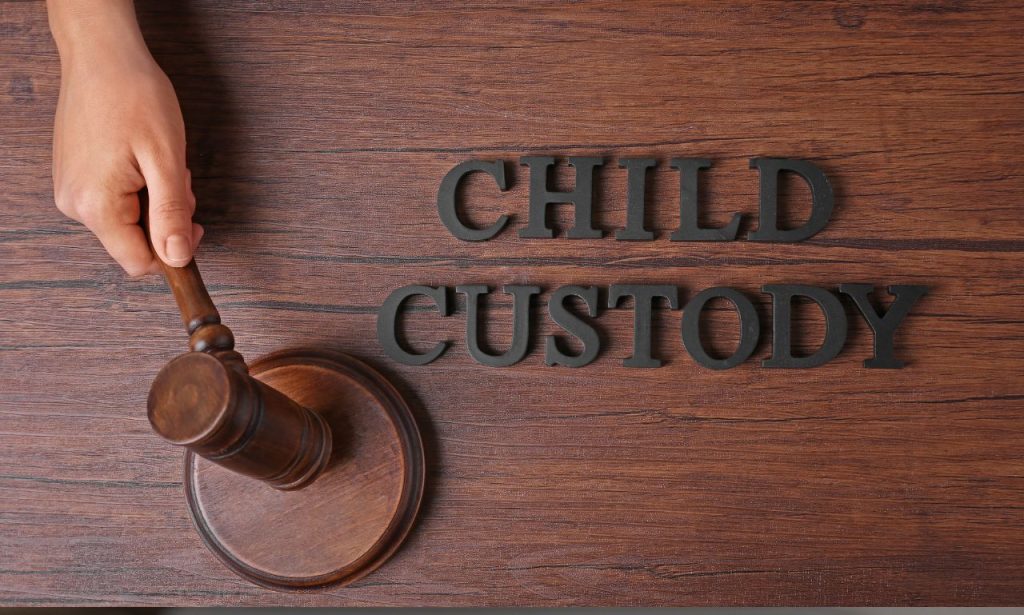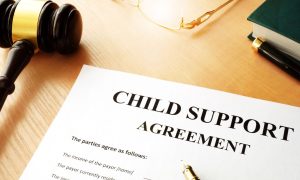You find yourself at a crossroads, facing a heart-wrenching decision that will shape the future of your child. The weight of their well-being rests heavily on your shoulders, compelling you to consider what are good reasons to get full custody. This journey, fraught with emotional turmoil and legal complexities, demands a clear understanding of the factors at play and the profound implications involved.
This isn’t simply about “winning” or “losing” a battle; it’s about securing a safe, stable, and nurturing environment for your child to thrive. This article delves into the intricate landscape of child custody, exploring the compelling reasons that might necessitate seeking full custody and guiding you through the complexities of this challenging process.
Key Factors Influencing Custody Decisions
Courts across the globe operate on a fundamental principle: the best interests of the child are paramount. This guiding principle supersedes any parental rights or desires, shaping every decision made regarding a child’s living arrangements. While specific criteria vary by jurisdiction, several key factors consistently influence custody rulings:
- Child’s Age and Developmental Stage: A child’s age and developmental needs play a crucial role in determining the most appropriate custody arrangement. Infants and toddlers, for instance, require a high level of physical and emotional care, often favoring the primary caregiver. As children mature, their evolving needs and desire for meaningful relationships with both parents are taken into consideration.
- Child’s Wishes: Depending on their age and maturity, courts may consider the child’s preferences regarding living arrangements. This doesn’t necessarily mean granting a child’s every wish but rather understanding their perspective and ensuring their voice is heard.
- Parent-Child Relationships: The quality of the bond between each parent and the child is carefully evaluated. Factors considered include the level of emotional closeness, the parent’s responsiveness to the child’s needs, and the consistency of their involvement in the child’s life.
- Parental Fitness: Courts scrutinize the physical and mental health of each parent, assessing their capacity to provide a safe and nurturing environment. This includes evaluating any history of substance abuse, domestic violence, or mental health issues that could jeopardize the child’s well-being.
- Stability and Continuity: Children thrive in stable and predictable environments. Courts strive to maintain continuity in a child’s life, considering factors such as their school, community ties, and relationships with extended family.
Importance of Child’s Best Interests

The paramountcy of the child’s best interests isn’t just a legal principle; it’s a moral imperative. Judges are tasked with stepping into the shoes of the child, considering what environment would best foster their physical, emotional, and developmental growth. This involves a delicate balancing act, weighing the needs and rights of both parents against the child’s well-being.
Courts recognize that a child’s relationship with both parents is invaluable, encouraging frequent and meaningful contact with both parents whenever possible. However, when a parent’s actions or circumstances pose a threat to a child’s safety or well-being, seeking full custody becomes a necessary step to protect the child’s best interests.
When Full Custody Becomes a Necessary Safeguard
While shared custody arrangements are often favored, certain circumstances necessitate a shift towards granting one parent full custody. These situations typically involve significant concerns regarding a child’s safety, well-being, or developmental needs. Let’s delve into some of the most common and compelling reasons why seeking full custody might be essential:
History of Abuse
Abuse, in any form, casts a long shadow over a child’s life, leaving lasting emotional scars and developmental challenges. When there’s a history of abuse, protecting the child from further harm becomes paramount. Whether it’s physical, sexual, or emotional abuse, courts are obligated to prioritize the child’s safety and well-being.
Physical Abuse
Physical abuse encompasses any intentional act that causes physical harm to a child, ranging from hitting and slapping to more severe forms of violence. Recognizing the signs of physical abuse is crucial:
- Unexplained injuries: Frequent bruises, burns, or fractures that lack a plausible explanation.
- Behavioral changes: Sudden aggression, withdrawal, or fearfulness, particularly around the abuser.
- Fear of going home: Reluctance to be in the presence of the abusive parent.
If you suspect a child is experiencing physical abuse, reporting it to the appropriate authorities is essential. Seeking full custody can create a safe haven for the child, protecting them from further harm.
Sexual Abuse
Sexual abuse encompasses any sexual contact or exploitation of a child, regardless of whether physical force is used. It’s a deeply traumatic experience that can have devastating and long-lasting consequences. Red flags that might indicate sexual abuse include:
- Sexualized behavior: Age-inappropriate sexual knowledge, language, or behavior.
- Physical signs: Unexplained genital injuries, urinary tract infections, or sexually transmitted diseases.
- Emotional distress: Sudden changes in mood, nightmares, bedwetting, or fear of a particular person.
Addressing sexual abuse requires immense sensitivity and professional intervention. Reporting suspicions to child protective services and seeking immediate medical and psychological help for the child is paramount. Seeking full custody can sever the child’s contact with the abuser, providing a safe space for healing and recovery.
Emotional Abuse
Emotional abuse often flies under the radar, leaving invisible scars that run deep. It encompasses a pattern of behaviors that attack a child’s self-worth and emotional well-being, including:
- Constant criticism and belittling: Consistently putting the child down, making them feel inadequate and unworthy.
- Threats and intimidation: Using fear and control to manipulate the child’s behavior.
- Isolation and rejection: Withholding love and affection, making the child feel unwanted and alone.
The insidious nature of emotional abuse makes it challenging to detect, but its impact on a child’s emotional development can be profound. Seeking full custody can provide the child with a nurturing and supportive environment where their self-esteem can be rebuilt.
Substance Abuse Issues

Substance abuse casts a wide net, impacting not only the individual struggling with addiction but also their loved ones, particularly children. When a parent grapples with substance abuse, their ability to provide a safe and stable environment for their child is severely compromised.
The unpredictable behavior, impaired judgment, and potential for neglect or abuse associated with substance abuse pose significant risks to a child’s well-being. Seeking full custody can shield the child from the chaos and instability of addiction, providing them with a secure and nurturing environment.
Conclusion
Embarking on the journey of seeking full custody is rarely an easy decision. It’s a process laden with emotional turmoil, legal complexities, and the weight of responsibility for your child’s future. Remember, you are not alone. Seeking guidance from experienced family law professionals can provide invaluable support and advocacy throughout this challenging time.
As you navigate this intricate landscape, keep the best interests of your child at the forefront of every decision. By prioritizing their safety, well-being, and long-term happiness, you are taking a courageous step towards securing a brighter future for them.
ALSO READ: What Does It Mean to Be Awarded Legal Fees?
FAQs
Contested custody cases can become complex and emotionally charged. It’s crucial to have legal representation to navigate the legal process, gather evidence, and present a compelling case for why full custody is in the child’s best interests.
Yes, custody orders are not set in stone. If there are significant changes in circumstances, such as a parent’s relocation, improvement in their situation, or a decline in their ability to care for the child, you can petition the court to modify the existing custody order.
A child’s therapist or counselor can provide valuable insights into the child’s emotional well-being, their relationship with each parent, and their overall adjustment. The court might consider their professional opinion when making custody determinations.
Custody disputes can be incredibly stressful for children. Provide reassurance, love, and a safe space for them to express their feelings. Avoid involving them in adult conversations or using them as messengers between parents.
Numerous resources are available to support families navigating custody challenges, including family counseling, legal aid organizations, and support groups for parents and children. Reach out to your local community centers or family courts for information on available resources in your area.





